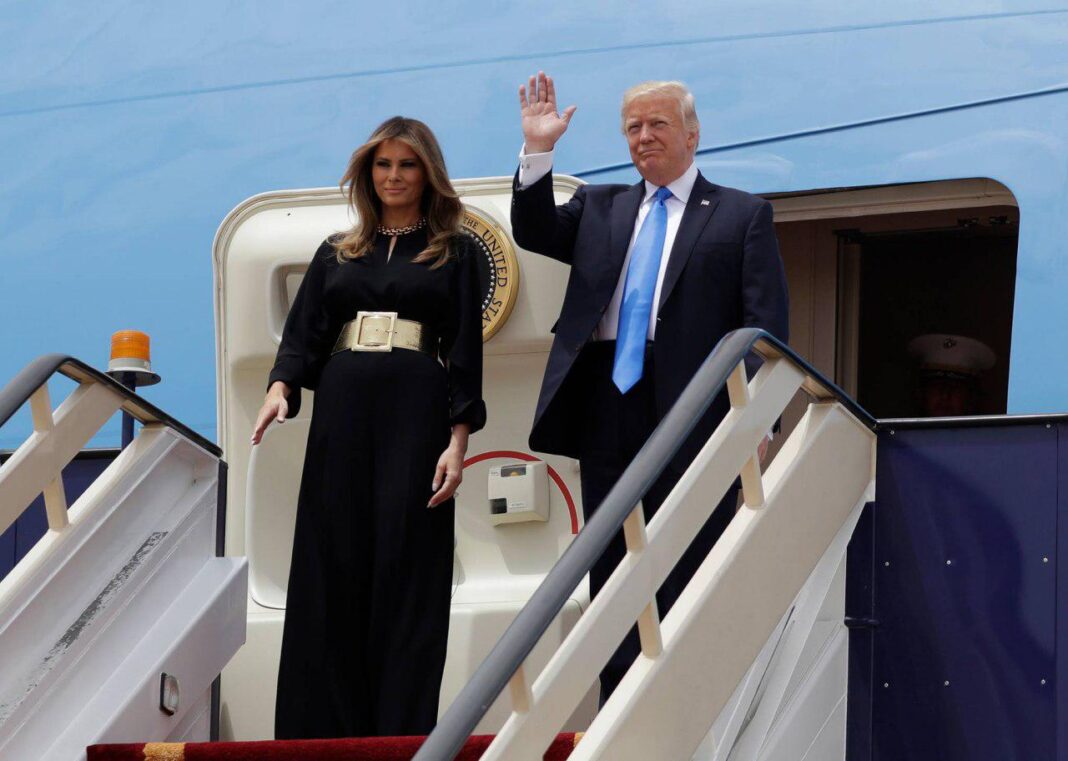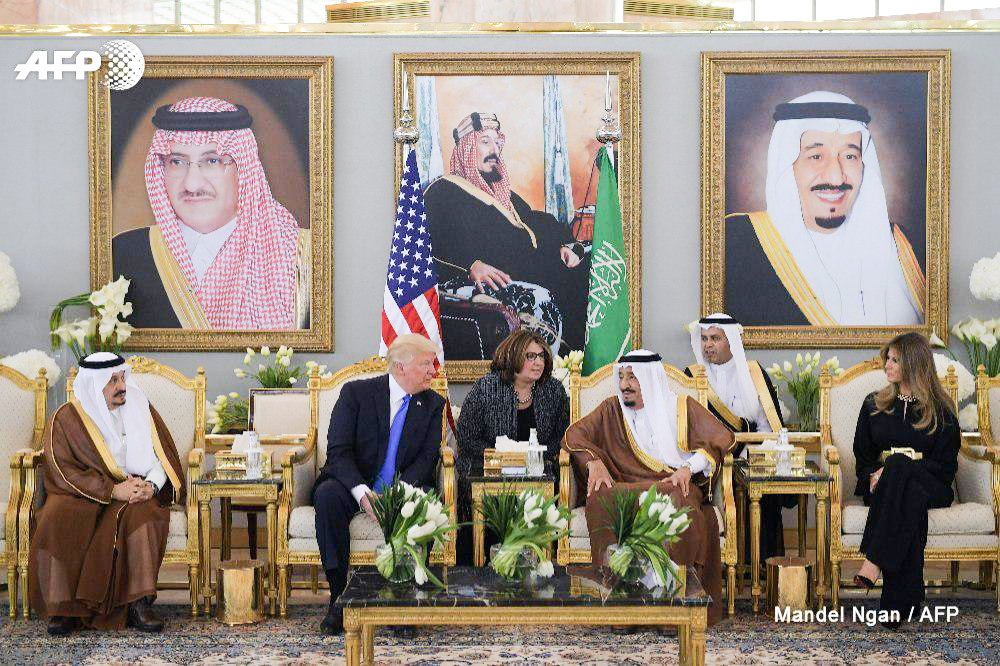US President Donald Trump arrived in Saudi Arabia on Saturday, on the first leg of his first overseas trip as president to hold talks with Riyadh authorities. Trump is going to attend a meeting with heads of 50 Arab states which, as Saudi King Salman bin Abdulaziz Al Saud says, is amed at forming an alliance called the “Islamic NATO” in order to counter Iran.
Based on speculations by Western media, Trump is also trying to encourage Saudi Arabia to strengthen their relations with the Israeli regime in order to better tackle their common enemy, Iran.
Saudi Deputy Crown Prince Mohammad bin Salman in an interview with the Saudi MBC network around three weeks ago made a series of threats against Iran. He said Riyadh would not wait to see a war break out in Saudi Arabia, but will try to get the conflict to erupt inside Iran. Such efforts became more obvious a little later when terrorist groups expanded their activities along Iran’s borders, especially the attack on Iranian border guards by terrorists from inside Pakistan.
Some observers believe these threatening remarks by the Saudi defence minister on the threshold of Trump’s trip to Riyadh were an attempt by Saudi Arabia to draw the US president’s support for anti-Iran efforts made by Riyadh and its allies. Also, Saudi Arabia reinforced activities by Riyadh-backed terrorist groups on Iranian borders, and at the same time, tried to form a military alliance known as the “Arab NATO” to prove itself to Washington as a country which is at forefront of confrontation with Iran.
Nevertheless, maybe Saudi princes had not considered the coincidence of Trump’s trip with Iran’s presidential election. The vote marked by a high turnout has taken international observers by surprise. The ballot was attended by people from all walks of life, including Iranian Sunni citizens, who Saudi Arabia believes have a lot of influence. This may raise a question for the Americans who are guests of Saudi Arabia: Can a country, whose name has been taken from the dynasty ruling it, be a reliable ally to confront a “hostile” country where just voters outnumber the whole Saudi population?
Maybe if Trump’s plane is allowed to fly across the Iranian airspace at a low altitude whereby he will be able to see the fervour and enthusiasm of tens of millions of Iranian voters, the first question he would ask the Saudi king and princes would be about the “meaning of election.”

